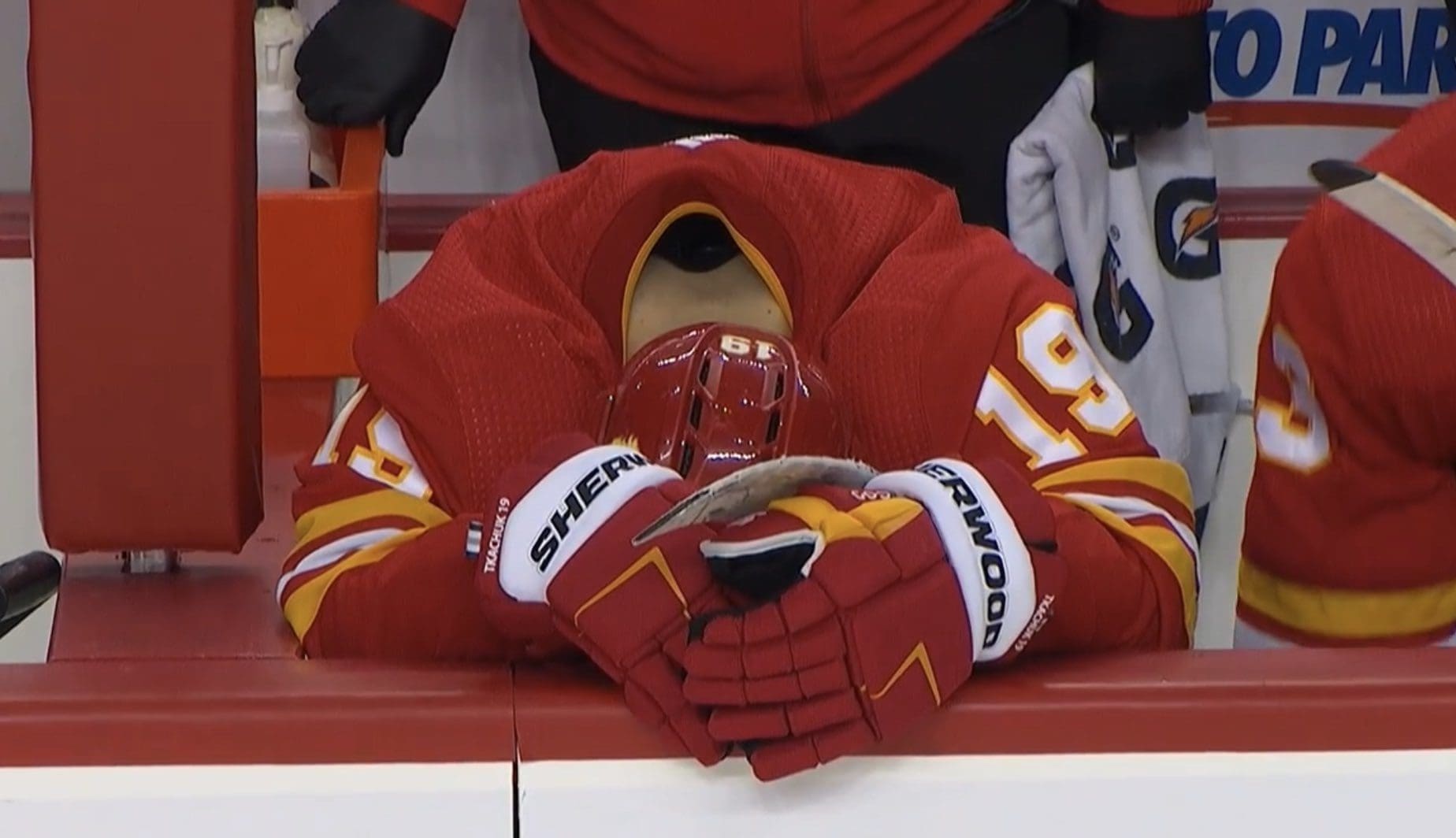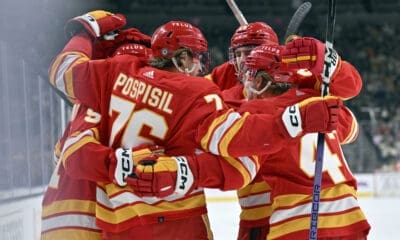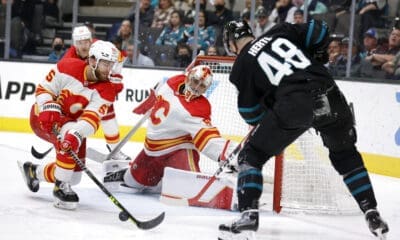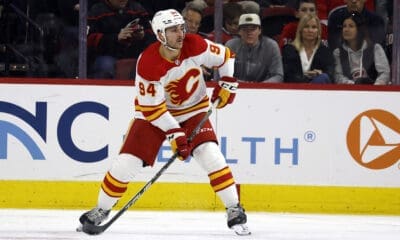Calgary Flames
Flames’ Omicron situation helping inform NHL decisions

Brad Treliving’s crash course in virology has come via Calgary Flames head physician and medical director, Ian Auld, over the past week.
But the education on Omicron, the variant they believe has rapidly spread through the Flames roster and support staff and their families, is happening in real time with the Flames population proving to be a living laboratory at the moment.
“You’re kind of getting educated in real time,” Treliving, the Calgary Flames GM, said Friday in a Zoom availability with Dr. Auld and the media. “You’re learning as you go. Ian has educated me on Omicron in the last week. In this particular variant, you’re learning it. We’re learning a lot more about it as we go here – not only for us but a lot of people in our medical community are using our situation to find out or learn a lot about the things we’re going through.”
The information their gaining is helping inform new protocol measures; but new learnings ranging from the transmissibility of the variant, to it’s short-term strength, and eventually the potential long-term repercussions of infection could come as well.
“We’ve had cases before, and we’ve had close contacts before. I’ve never seen transmissions on this level. It doesn’t require a huge window to move person to person,” said Dr. Auld.
No one was saying it directly on Friday, but it sure seems like the connection to the Carolina Hurricanes and Boston Bruins – the last two Calgary Flames opponents – suggests on-ice transmission is taking place.
“To date, with previous variants, the risk of on-field, on-ice transmission has been negligible. Omicron is creating a different landscape on that,” said Dr. Auld, stopping short of stating the obvious connections we’re seeing so far. “The answers are not clear at this point.”
Although the Calgary Flames had no new positives to report on Saturday for the first time in nearly a week, the NHL made more shutdown decisions ahead of the holiday break, postponing all games before Christmas for the Flames, then the Florida Panthers and Colorado Avalanche, and now the Boston Bruins and Nashville Predators. In addition, several one-off games for other teams have been moved this week.
Could bubble practices be a part of NHL future?
Many may be wondering why some of the players can’t just keep practicing given the fact they’re asymptomatic or experiencing mild symptoms. All those things are getting talked about at the league level. As humanity continues to learn how to live with COVID, there may come a day when that happens but, for now, the Flames are part of the “circuit-breaker” policy that forces them to quarantine to prevent spread between groups.
“If everyone is positive and it’s safe for them to skate, could they? Theoretically, yes, but they’re in isolation now and they have to follow the protocol of isolation, which is you stay in your home,” Dr. Auld said.
“Overwhelmingly so far, our cases have been either asymptomatic or mildly symptomatic. We do have a few people … that have had what I would call moderate symptoms. Chills, fever, fatigue. Overall, we’ve seen mild disease, which is very reassuring for hopefully the world but certainly us as a group.”
The NHL has been trying to get as many games completed as possible prior to Christmas. But it’s becoming more and more difficult to do so because of the rapid spread. For the Calgary Flames, it quickly became impossible.
“We had a pretty good three-on-three team. They might have been tired after it was all said and done, but there comes a point where you don’t have any guys left,” Treliving joked on Zoom. “I joked with (head coach Darryl Sutter) it’s probably the only time players wouldn’t have bitched about ice time.
“There’s teams that are playing with short rosters. We just got to the point here where we just didn’t have any players left.”
And all of those players are itching to get back on the ice.
“You never want to have your season interrupted. We’re having a good year. They’re eager to get back,” Treliving said. “Competitively, they want to get back. We’re trying to look at this as a bump in the road.”








